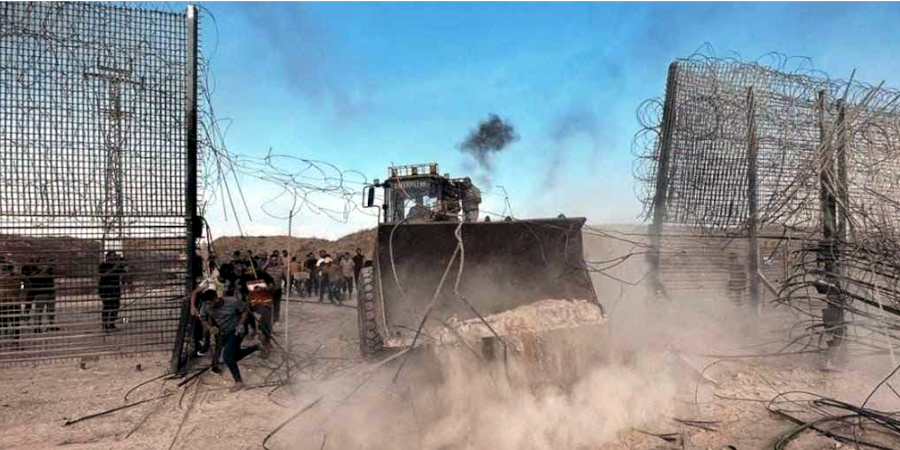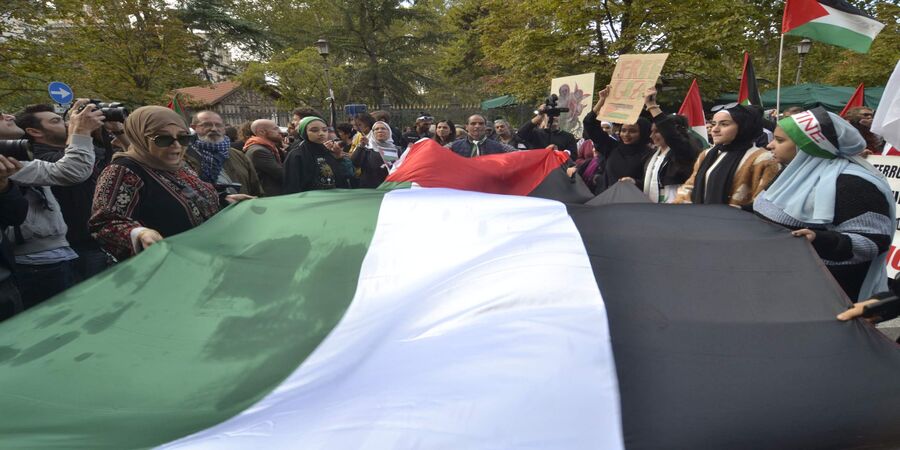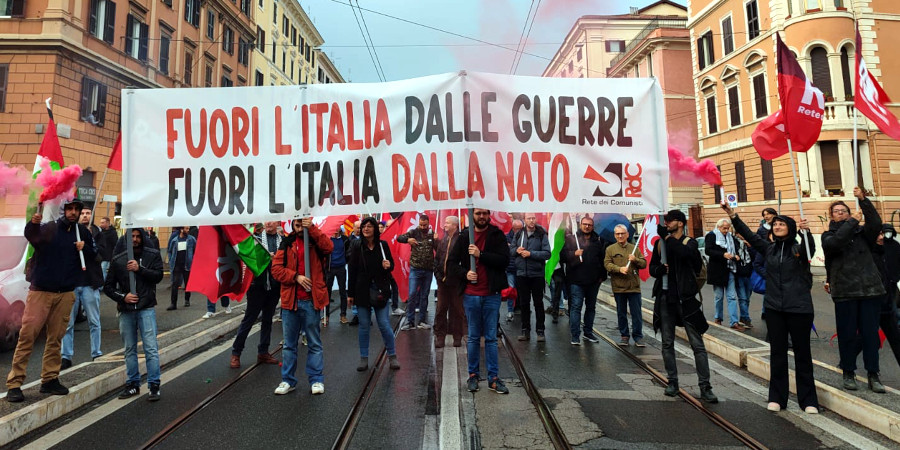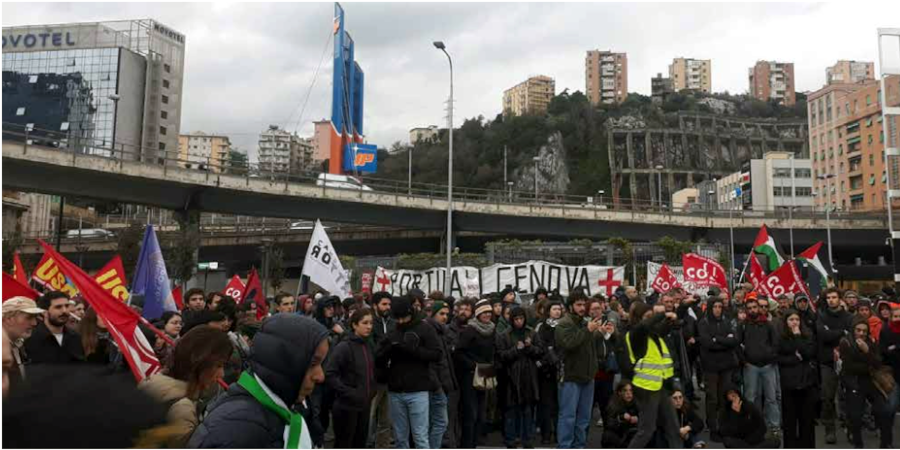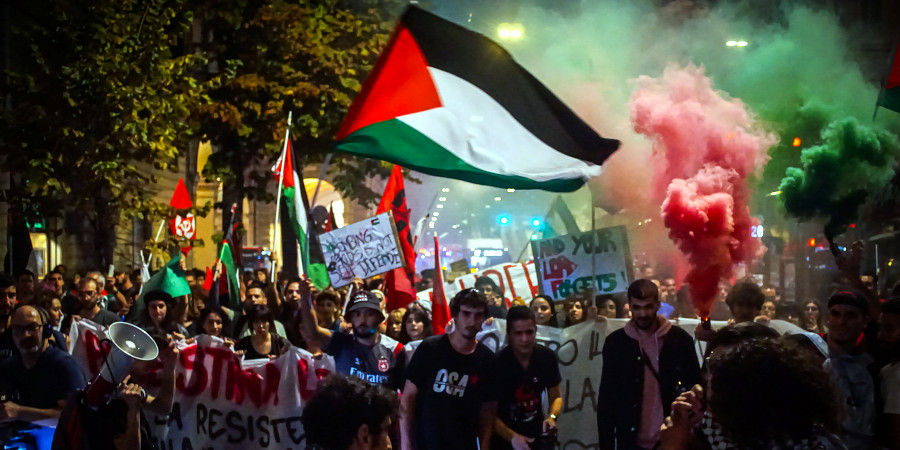| english | español | français | italiano
Rete dei Comunisti in International Bulletin November 2023
On the morning of January 30, 1968, the Vietnamese resistance launched the Tet Offensive, named after the New Year’s Eve in the Vietnamese lunar calendar.
The operation was a large-scale and in-depth offensive, the largest of those conducted by either side of the conflict since its inception in 1965, and employed some 85,000 North Vietnamese and Vietcong fighters.
In Saigon, the fighters penetrated the Presidential Palace and the U.S. Embassy compound.
It was a quantum leap from the guerrilla warfare conducted thus far.
Although it ended a tactical defeat on a strictly military level, it was a strategic victory politically, won through the sacrifice of Vietnamese fighters-about 30,000 lost their lives-and it had an irreversible psychological impact on the enemy and the choices he was forced to make from then on.
The offensive had made it clear that the Vietcong, even after years of wearisome warfare, were capable not only of resisting but of going on the counterattack, changing the balance of power.
Hanoi radio had claimed that the purpose of the offensive was the overthrow of the South Vietnamese government led by Nguyen Van Thuie, who declared martial law on the territory he administered the day after the offensive.
The operation did not lead to the hoped-for “insurrection,” but in fact ended just under a month later on Feb. 25, with the ouster of the last Communist unit from the old imperial citadel in Hue.
It had a major impact on the Ford administration, and shocked the North American public, which had been convinced (by political leaders and the media) that the Vietcong were on the verge of defeat and that the Resistance was incapable of conducting operations on that scale.
Support at home in the U.S. for this Washington military adventure declined because of casualties (more than 1,000 killed and 6,000 wounded among Americans) and the subsequent call for increased recruiting (there was compulsory conscription), prompting Johnson not to run again.
It was a totally unexpected turning point in the dynamics of the conflict, as well as for the antiwar movement in the U.S. and around the World.
It took years to eventually arrive at the Paris Accords (January 1973) and then the actual end of the war in April 1975. But the furrow drawn by the Tet Offensive made understandable to the world the message that President Ho Chi Min had delivered on December 25, 1967: “it is clear that the Americans have lost the war.” Saigon was then “liberated,” and pictures of the helicopter escape from the rooftop from the U.S.
Embassy went around the world.
Mutatis mutandis (Hamas is hardly comparable to the Vietnamese Communist Party), with the Palestinian offensive on Saturday, October 7, it is clear that Israel has lost its war and that the regional political earthquake will change the balance of power in the Middle East.
The winner will be the Palestinian people and all the organizations that make up their Resistance-and their friends and allies-who, on the anniversary of the 1973 Yom Kippur War, decided once again to break barriers that seemed impenetrable.
Then it was the crossing of the ‘Bar-Lev Line’ by Egyptian troops, built by Israel after the conquest of the Sinai in 1967, today those fortified structures that had been making Gaza for years an immense open-air prison and a firing range for Tsahal’s snipers and bombers, enclosed in a blockade that the hypocrisy of the Western “international community” had removed.
Israel was hit hard by an offensive that produced more than 700 dead, 2,000 wounded, at least 100 prisoners, the momentary “recapture” of portions of territory around Gaza and major material damage to Israeli facilities.
This is unprecedented in the history of the Resistance of this people.
This has produced a wound that will remain indelible in Israel and which the Zionist leadership’s thirst for revenge – a state of war has been declared and an attack on Gaza is also being prepared from the ground – will not be able to heal, no matter how ruthless its response supported by its Western allies (mainly the US, EU and Ukraine).
On the Qatari network Al Jazeera, with the presenter reiterating that a state of war had been declared in Israel, a Palestinian analyst responded, “it has been decades since Palestine has been in a state of war.” And from resistance, by all means, came the liberation war and popular uprising.
On Saturday the death knell rang for Israeli intelligence and the Zionist army’s ability to respond. And that decreed the end of the political formula that brought Natanyau to rule, effectively marking the end of his career just as he seemed unscratchable by internal opposition.
The offensive has also “galvanized” the Palestinian Resistance in the West Bank and the Diaspora, and again polarized public opinion in the Arab states. reaffirming the positioning of that leadership that has positioned itself as the new “front of rejection” against normalization with the Zionist entity: Iran, Syria and Algeria.
But we are reasonably certain that the Palestinian offensive will also set fire, at least in part, to the European “garden” as far as that part of the subordinate classes of Arab origin and/or Muslim faith who see in it an opportunity for redemption against that “collective West” that has been incapable of finding a political-diplomatic solution to the Israeli-Palestinian conflict, acquiescing to and flanking the neo-colonial policies that have “legalized” Israeli apartheid, completely nullifying the Oslo Accords.
This could be an opportunity for the leading players in the “multipolar world” to pose as mediators and advance a diplomatic solution that is not simply the restoration of the status quo, but includes the implementation of UN resolutions disregarded by Israel and by the so-called £International Community.” The Palestinian offensive is a breath of fresh air, in fact, even for the class and internationalist left, and an indelible lesson in courage.
The physical and metaphorical wall around Palestine has been torn down.
We think definitively.
9 October 2023

